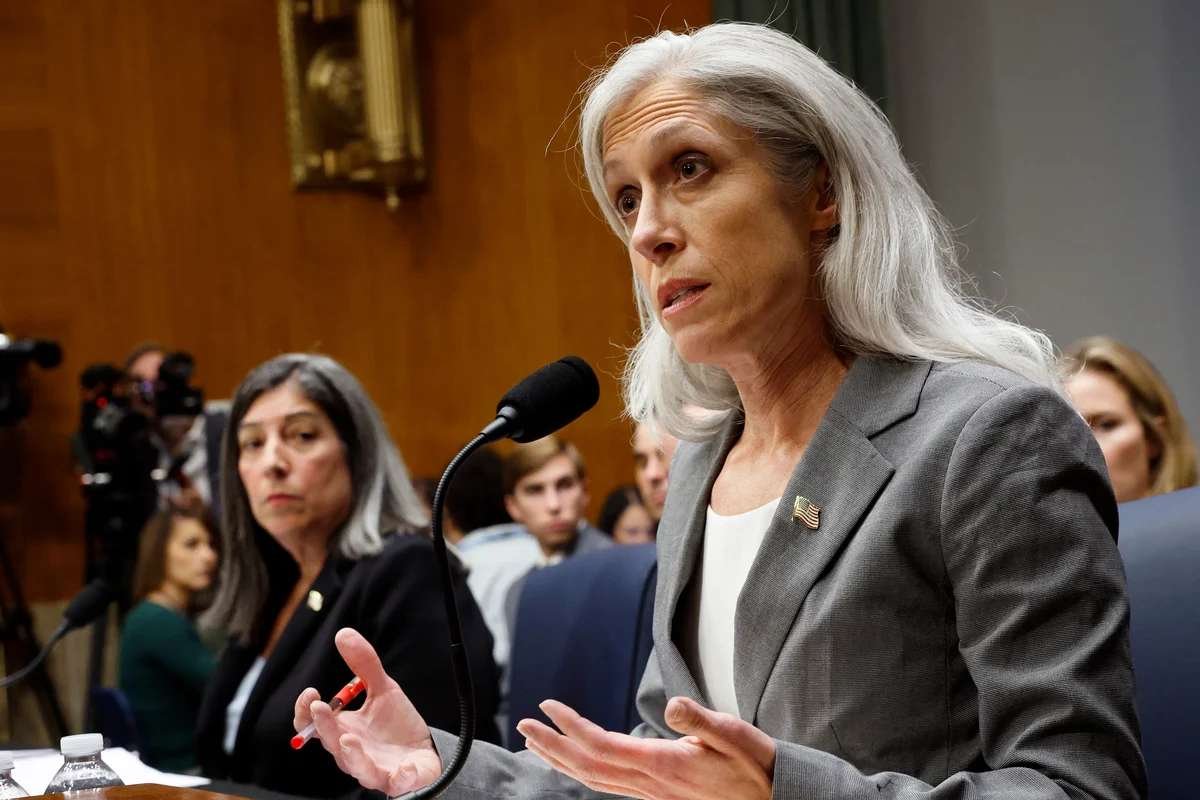Key points:
- Monarez accuses RFK Jr. of pressuring CDC vaccine decisions.
- Officials warn that politicization risks CDC credibility.
- Senate investigates to protect evidence-based guidance.
Former CDC Director Susan Monarez testified before the Senate this week, claiming she was pressured by Health and Human Services Secretary Robert F. Kennedy Jr. to alter the agency’s vaccine policies in ways she described as scientifically unsound. According to her account, Kennedy asked her to commit in advance to approving every recommendation of the CDC’s Advisory Committee on Immunization Practices, regardless of whether the evidence supported those recommendations.
Susan Monarez further alleged that Kennedy directed her to dismiss career scientists who worked on vaccine policy until the agency leadership aligned with his demands. When she refused, she said, she was abruptly dismissed from her post. In her testimony, Monarez stressed that she could not compromise on scientific integrity and consistently demanded evidence before making public health decisions.
She warned senators that the current trajectory of the CDC risks undermining scientific credibility and jeopardizing vaccine access for children. Without evidence-based decision-making, she cautioned, preventable diseases could resurge.
Resignations and Concerns Over Scientific Independence
Susan Monarez’s testimony was reinforced by Dr. Debra Houry, the CDC’s former Chief Science and Medical Officer, who resigned earlier this year. Houry explained that she stepped down because she believed the agency’s work was being politicized under Kennedy’s leadership. She described a culture of censorship and interference, which she said left CDC scientists unable to freely pursue evidence-based recommendations.
Both officials voiced deep concerns about the reconstituted Advisory Committee on Immunization Practices, which is now tasked with shaping vaccine guidelines. Monarez said she was “very nervous” about whether the panel has the expertise required to evaluate vaccine data accurately. Houry echoed those fears, emphasizing that the integrity of decisions such as changes to the childhood vaccine schedule must not be compromised.
Their warnings raised alarm among senators about the potential erosion of the CDC’s credibility at a time when public trust in vaccines remains fragile.
Senate Reaction and Broader Implications
The Senate hearing drew sharp questions about transparency, accountability, and the future of scientific independence within the nation’s top public health agency. Lawmakers stressed the importance of ensuring that CDC guidance remains rooted in evidence, warning that public health could be endangered if political considerations override scientific judgment.
Susan Monarez also disputed claims made by Kennedy in public statements, including assertions that she had described herself as untrustworthy or had been asked to eliminate terms such as “birthing people” or “health equity.” She maintained that these were misrepresentations designed to justify her removal.
The Department of Health and Human Services pushed back on her testimony, arguing that her account contained inaccuracies and left out details about alleged insubordination. Still, senators indicated they intend to pursue additional documentation, including possible recorded conversations between Susan Monarez and Kennedy, to verify the competing narratives.
The testimony has intensified scrutiny over how vaccine policy is being shaped under Kennedy’s tenure, fueling broader debate about the balance between political leadership and scientific independence at one of the nation’s most vital public health institutions.
Visit CIO Women Magazine For The Most Recent Information.









